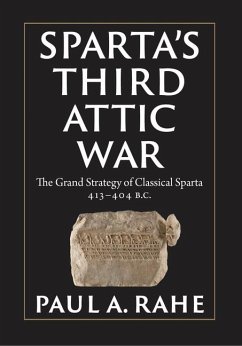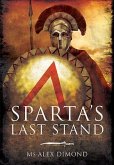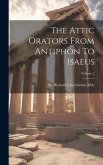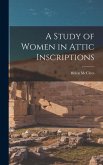When the great war pitting the Athenians against the Peloponnesians first erupted, Pericles told his compatriots that, if they kept up their navy, focused on the conflict at hand, and refrained from wasting their resources on ulterior objects, they would "win through" - and Thucydides believed him. After Pericles' death, however, to the historian's dismay, the Athenians pursued risky adventures tangential to their struggle with the Spartans and their allies; and, in Sicily, thanks in large part to domestic strife, they squandered not one, but two great armadas. Then, in the aftermath of that catastrophe, they found themselves bereft of triremes and short of manpower - as a coalition formed against them including their Lacedaemonians rivals, their longtime allies in the Aegean, and the Great King of Achaemenid Persia. In Sparta's Third Attic War, Paul Rahe examines the armed conflict that followed, attending to the impact on its outcome of the internal struggles that took place at Athens, at Sparta, and at the court of the Great King; describing the maneuvers of the wily, flexible, seductive Athenian turncoat Alcibiades, who dominated in turn the counsels of the Spartans, the Persians, and his fellow Athenians; and charting the eventual emergence at Lacedaemon of a commanding figure of helot ancestry named Lysander, who formed a close relationship with the younger son of the Great King and, in battle, outwitted the Athenians at every turn. This is a story of grit, determination, and brilliance on both sides. It examines the ambivalence of the Spartans, it relates the folly that brought the Athenians down, and it traces their ultimate defeat to defects in the policy and vision of Pericles.
Hinweis: Dieser Artikel kann nur an eine deutsche Lieferadresse ausgeliefert werden.
Hinweis: Dieser Artikel kann nur an eine deutsche Lieferadresse ausgeliefert werden.








